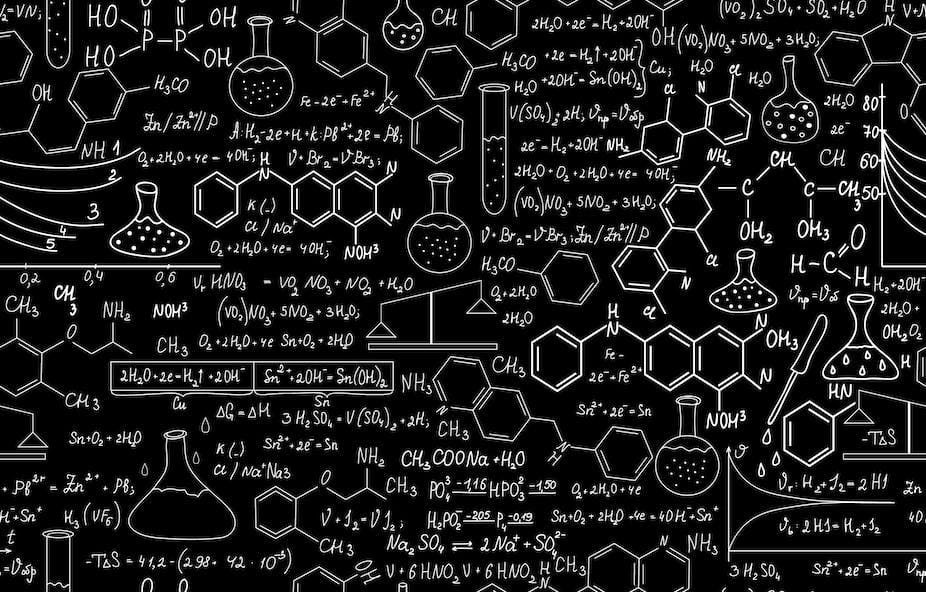What is Chemistry?
Chemistry is a discipline of science concerned with the study of matter, including its structure, composition, and changes that occur when it is exposed to various situations. As a result, chemistry not only investigates the qualities of matter, but also how and why it changes.
Chemistry is found in every single product. If you even look around where you are sitting, it’s basically in the soda you’re drinking or in the food harvesting that it took to get the ingredients you are currently eating. So, while you may not think of chemistry off the top of your head when looking at your face wash, it took some science to get that product currently in your hand.
Impact of Chemistry in Food
Chemicals are the fundamental components of everything. Chemical molecules make up all food, including carbs, vitamins, lipids, proteins, and fibre, which are all safe and often desirable. Chemicals have an important role playing in preserving food and manufacturing food additives, flavouring and nutritional supplements. Food preservatives have tremendously aided in preservation of food for a long time. Chemistry has provided the globe with vital fertilizers, herbicides, insecticides, and fungicides to aid in the production of healthy and nutritious crops, fruits, and vegetables. Urea, calcium superphosphates, ammonium sulphate, and sodium nitrate are all significant fertilizers. The art of cooking, transforming the qualities of ingredients and how they combine to form new textures and tastes is itself a chemical process.
Impact of Chemistry in Medicine
Chemistry plays a huge part in medicine, with biochemistry concerning normal structure, function and nutrition of the body, pharmaceutical chemistry involving in treatment of diseases, and laboratory chemistry helping in diagnostic testing. Medicines or pharmaceuticals are chemical substances that are used to treat diseases and relieve pain. Chemistry has made significant contributions to health care. Chemistry, for example, aids in the manufacture and application of surgical materials.
For analysis, clinical laboratory tests employ a wide range of chemical procedures and substances. Chemistry has played a significant role not only through understanding the biochemical and physiological functioning of the body but also the way medicine is done.
Impact of Chemistry in Cosmetics
In day-to-day life we use lotions, fragrances, and a variety of other cosmetic goods. Chemicals in personal care and makeup products have many uses, from preserving the product and adding fragrance, to providing sun protection and making the product feel smooth and silky. Chemistry is found in every single product. There is not much thought from day to day about who creates the products we put on our faces. But if you even look around where you are sitting, it’s basically in the soda you’re drinking or in the food harvesting that it took to get the ingredients you are currently eating. So, while you may not think of chemistry off the top of your head when looking at your face wash, it took some science to get that product currently in your hand.
Impact of Chemistry in Textiles
Textiles for clothes are also sometimes finished with chemicals, for example, to stiffen them and make them wrinkle-free. Chemicals in their nanoforms are helping make textiles more resistant to water, stains, wrinkles, bacteria, and mould. Wool, silk, cotton, glass fibre, polyester, acrylic, nylon, and other raw materials are used in the textile industry to create usable items such as clothing, bags, carpets, furniture, towels, nets, and so on. Raw materials go through several chemical procedures during which cleaning and smoothing reagents are employed to clean and smooth the fabric. Other chemical processes such as dyeing, bleaching, scouring, printing, and finishing are also involved. In addition, chemists seek to increase a product’s quality using chemistry. The role of chemistry in textile industry is to design and develop new textile products which keep up with latest fashion trends and are also functional and affordable. The changing nature of lifestyles across the globe also calls for new innovative textiles to be developed. Due to anticipated growth, companies often face difficulty managing quality and quantity as output increases. This calls for a scientific approach to check on qualitative and quantitative parameters to maintain the uniformity of the product being produced.
Impact of Chemistry in Building and Constructions
Chemicals are used in virtually every facet of building construction and maintenance, from roof membranes that reflect light and keep roofs cool, to sealants and caulks used to keep basements dry. Chemical items such as bricks, cement, pipelines, and other building materials all play an essential part in the quality of construction. Floor and wall tiles are constructed of heat-resistant polymers that also add strength to the structure. Ceiling and roof materials are also designed to be heat resistant and give cooling to the structure. All the pipes and switches are composed of polymers, which are both heat and stress-resistant. As a result, chemistry enabled the use of all these goods for the development of structures and people’s lives.
Impact of Chemistry in Wars
TNT, RDX, HMX, gun powders used in bullets, and other explosives used in conflicts are all chemical compounds. It was the chemistry that allowed these chemicals to be used during the war. Nuclear weapons, which have become more well-known in recent years, are also chemicals.
We human beings are knowingly or unknowingly surrounded by chemistry. Morning to evening, life to death, it is a big aspect of our day-to-day life. One may think that it is a branch of science that deals with chemicals in the lab only but unknowingly he/she is applying it in daily works. We find its use in the food we eat, cleaning chemicals, the air we breathe and every object we touch. Literally, student’s chemistry education takes place in lectures and books, lab playing with instruments and chemicals, and they don’t see the relevance in their everyday life. Understanding the importance of chemistry in our regular life is most important in our technological and competitive society. It also helps to understand the world issue arising currently. One might get surprised when we say that our body is made of chemical elements and compounds so we can say we are the products of chemistry. Our emotions like love, respect, jealousy, frustration are also the aspect of chemistry.
Thus, the daily life chemistry is the theme of science which is all around us every minute in every location and there is not any shortage of examples to prove this fact. Without chemistry, our life is impossible, so it is one medium to live a better life and better doing. So, it is a must for everyone to learn and enjoy. Hence effective and good use of chemistry is the need of this modern technological world.
Written By: Sandali Wickramasinghe
References:
https://leverageedu.com/blog/chemistry-in-everyday-life/
https://www.allenoverseas.com/blog/chemistry-in-everyday-life-facts-examples-and-importance/
Image Courtesy:
Cover Image: https://bitly.ws/3e6wq
Image 1: https://bitly.ws/3e6dH
Image 2: https://bitly.ws/3e6bN
Image 3: https://bitly.ws/3e6bX
Image 4: https://bitly.ws/3e6ca
Image 5: https://bitly.ws/3e6cp
Image 6: https://bitly.ws/3e6cv







